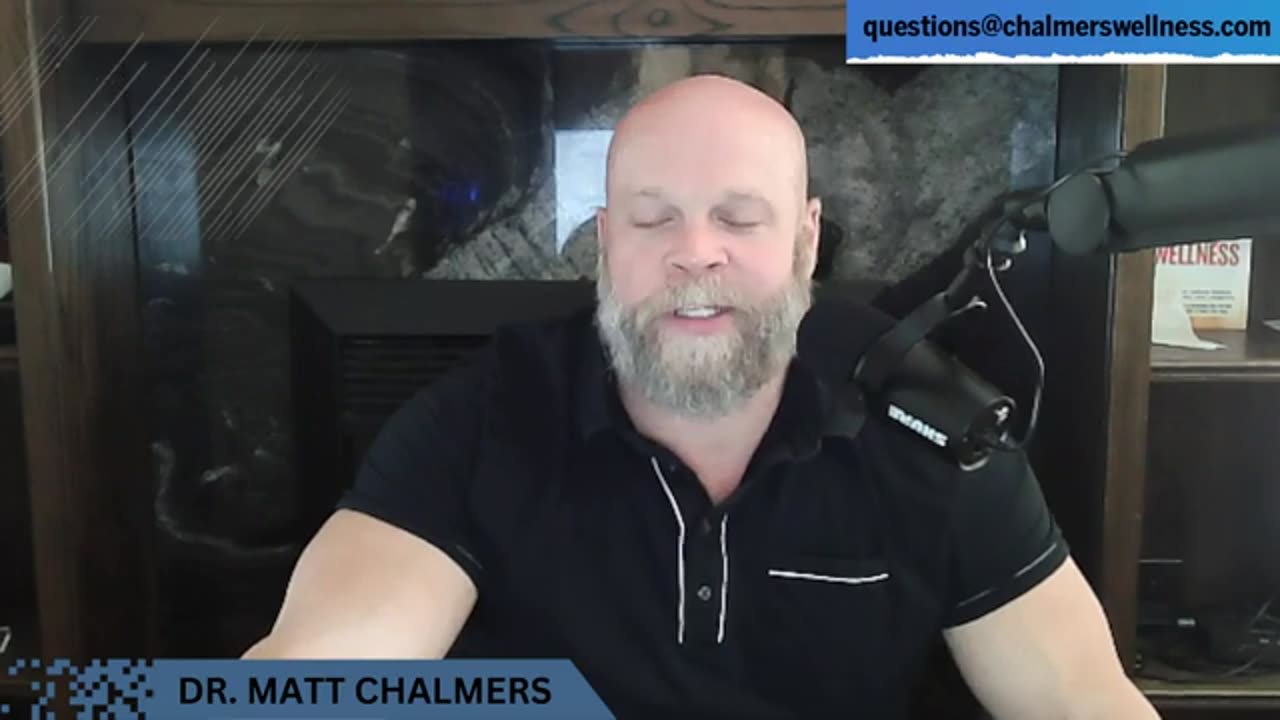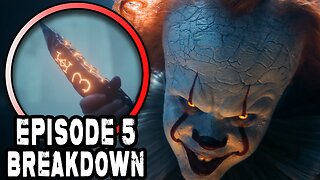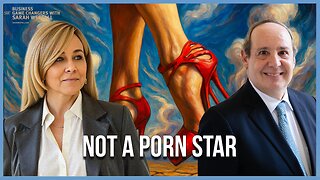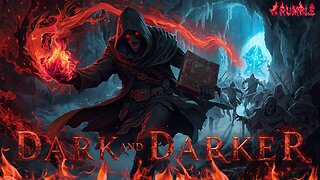Premium Only Content

Which part of the brain can cannabis have the ability to affect and how does this impact anxiety?
Check out all things around my TEDx talk at Pillarsofwellness.com/tedx
It is rewarding to get feedback and start discussions around the opioid crisis across the nation. As we progress, we will post our interviews and discussions to help bridge the conversations. Please send me your questions at [email protected] about any of the research as you can help with the crisis through your discussions.
This podcast features some questions that have been sent in from viewers of my TEDx talk.
This podcast features questions.
- How much do I Emphasize the Importance of shutting off the Amygdala?
- Consider Cannabis as a Nutrient
The following is a transcription of this podcast from [email protected].
Dr. Matt Chalmers [00:00:03] This. Doctor Chalmers, welcome to Wellness Insights with me, Dr. Chalmers. Which part of the brain is can have the ability to affect and how does this impact anxiety? Well, if you specifically are talking about anxiety, that's the amygdala. So the amygdala is in the temporal lobe and it is responsible for all the bad things in the world. Fear, hate, anger, terror, stress, anxiety, all that stuff. So that's the big issue with how it affects the brain and affects the amygdala. And we want it to affect the amygdala. It does not affect the pons, like I said earlier. So you can continue to breathe as much as you want to.
Dr. Matt Chalmers [00:00:32] It has more impact on the temporal lobe than anything else, which is really good because that's where epileptic epilepsy comes from. So we can actually suppress temporal firing, which a so a seizure is abnormal firing in the temporal lobe. Okay. So we can decrease firing in the temporal lobe.
Dr. Matt Chalmers [00:00:50] Guess what? All of a sudden we've decreased seizures and that's what we see with all of cannabis in epilepsy. So that's why epilepsy and cannabis works so well together because of that suppression of abnormal firing in the temporal lobe. It does have some suppression function to the frontal lobe. So you're not gonna be able to think nearly as well that, you know, depending on how much you've consumed and where you're at, you know, you might have anywhere from 0 to 10% functional command loss.
Dr. Matt Chalmers [00:01:18] I will tell you that as a personal thing, something I'm super not proud of. There's been lots and lots of times in my youth where I would drink too much and then drive home. I know it's stupid. It's the worst thing I've ever done. It's terrible, but I've never consumed cannabis and then thought, you know, I should drive. In fact, there's been a couple of times where I was supposed to leave at a certain time and I went, No, I don't feel like I'm good to drive. I'm going to wait 30 minutes, which has never happened with Canada, with with, with alcohol.
Dr. Matt Chalmers [00:01:44] So as far as making bad decisions, I have not seen it. You're going to say to silly stop because that you think is profound. But that's about it. And the worst thing you're going to do is eat too much. That's from what we've seen. That's basically what's going on. How much do I emphasize the importance of shutting out the amygdala? My entire practice is based around the quality of life. Wellness is the quality of life over time. Shutting off stress is the number one thing I try to do. And so shutting down the amygdala, calming it down, the thing that tells you that everything is terrible, that you're you're scared, that you have stress, that you know, all the negative things fear, hate, anger, terror. How about how much how important to shutting that off? Really important. Really important.
Dr. Matt Chalmers [00:02:25] So, yeah, like this is a daily thing. Like, we should start working on this. How do I connect anxiety and stress, the functioning amygdala? I just kind of told you it is directly 100% linked. So I will tell you this. This is kind of silly joke, but it's also kind of silly. True. I will consider cannabis a nutrient because the definition of nutrient is something that the body requires in order to function normally and survive. If you didn't have any cannabinoids in your body, your brain would no longer work. Your endocannabinoid system which is inside of you right now. Regardless if you've ever consumed cannabis, it is in there. And we're using cannabinoids to make the brain and spinal cord function.
Dr. Matt Chalmers [00:03:04] Your entire CNS is directly dependent upon those chemicals to function. So adding in a different cannabinoid structure that helps your body to function, helps your brain to function in the way that we want to. I'm going to consider that a nutrient tongue-in-cheek funny, kind of true, that type of thing. So but that's that's just a fun thing that I have to throw out. If you guys have any questions, hit us up questions at Chalmers wellness dot com Thanks.
#tedxtalk #cannabisheals #cannabistalk101 #opiods #opioidcrisis
-
 18:46
18:46
ThinkStory
1 day agoIT: WELCOME TO DERRY Episode 5 Breakdown, Theories, & Details You Missed!
19.1K -
 2:23:05
2:23:05
Badlands Media
13 hours agoBadlands Daily – Nov. 27, 2025
120K36 -
 6:20:00
6:20:00
FusedAegisTV
7 hours agoFUSEDAEGIS | They Put A Freakin' Blue Mage In THIS | Expedition 33 PART V
43K -
 1:16:04
1:16:04
Rebel News
5 hours agoHealth-care collapsing, Bloc says Quebec sends Alberta $, US Ambassador's advice | Rebel Roundup
26.8K24 -
 1:44:03
1:44:03
The Shannon Joy Show
5 hours agoThe BEST Of Shannon Joy 2025! Special Thanksgiving Holiday Compilation
29.7K -
 1:07:25
1:07:25
Sarah Westall
21 hours agoSarah Westall is Not a Porn Star – Conversation w/ Stuart Brotman
21.5K14 -
 2:59:36
2:59:36
Wendy Bell Radio
13 hours agoPoint Blank Hate
91.3K114 -
 4:56:43
4:56:43
MrR4ger
10 hours agoWARLOCK SOLO SELF FOUND HARDCORE - D4RK AND D4RKER HAPPY TURKEY DAY RUMBLEFAM
26.4K1 -
 1:33:31
1:33:31
Barry Cunningham
18 hours agoBREAKING NEWS: KASH PATEL AND DOJ HOLD PRESS CONFERENCE UPDATE ON NATIONAL GUARD ATTACK
131K83 -
 1:22:22
1:22:22
iCkEdMeL
8 hours ago $15.43 earned🔴 BOMBSHELL: DC Shooter Worked With CIA-Backed Unit in Afghanistan, Officials Say
33.9K31